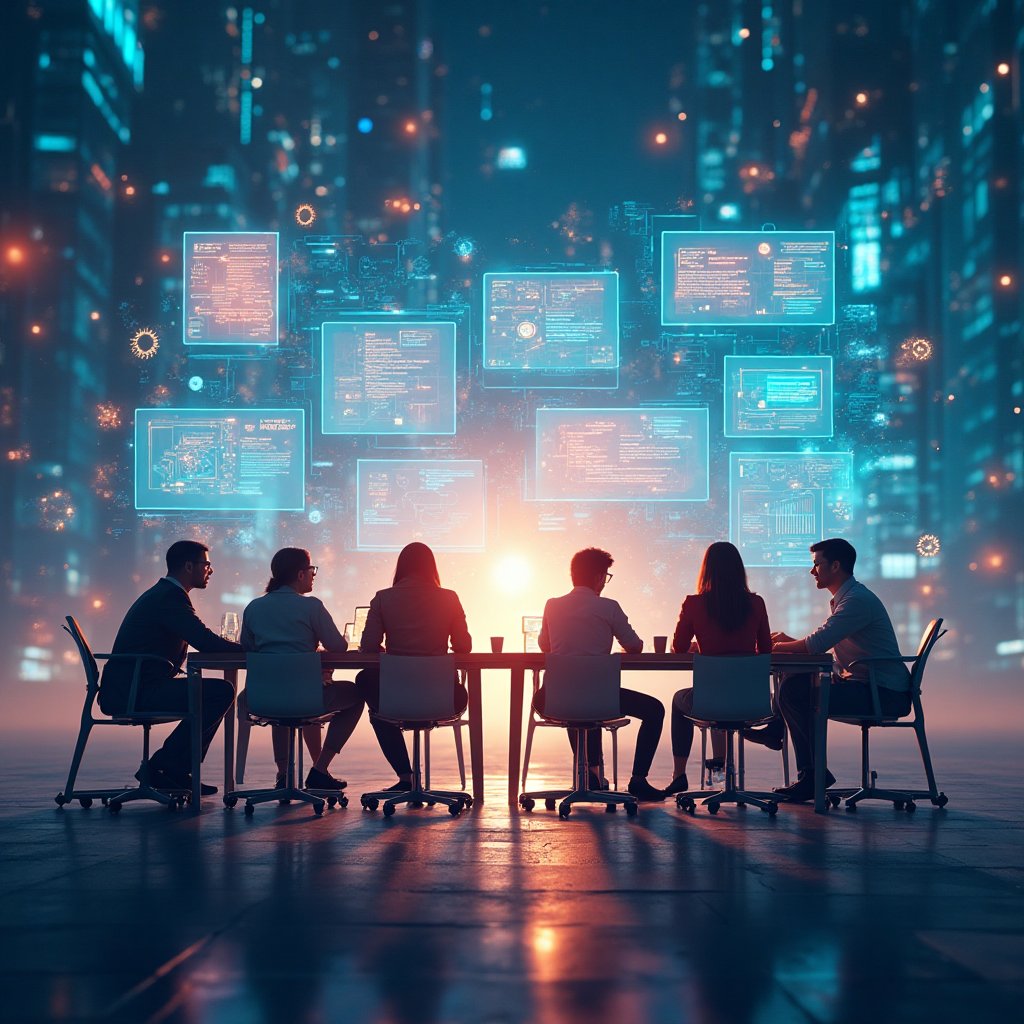OpenAI is stepping into the ring against Google and Microsoft with a new set of features that could change how we work together online. These enhancements will allow people to collaborate directly on documents and communicate using chat right inside ChatGPT. This shift places OpenAI on a direct collision course with Microsoft, its biggest competitor in the tech world. Understanding why this matters is crucial. As businesses and individuals are increasingly relying on tech for collaboration, this new offering could soon reshape the landscape of online productivity tools.
In recent years, collaboration tools have transformed the way we work, study, and communicate. With the pandemic forcing many of us to work and learn from home, platforms like Google Workspace and Microsoft Office have become essential. According to a report by Statista, the global collaboration tools market is expected to grow significantly, highlighting a rising demand for better solutions. Therefore, OpenAI's move into this space is exciting and potentially game-changing for users everywhere.
What Will OpenAI Offer?
OpenAI’s potential features could see a blend of AI-powered writing assistance and seamless communication. This could include:
- Real-time Document Collaboration: Much like Google Docs, users could edit documents together live, providing instant feedback.
- Integrated Chat Functionality: Users may communicate directly from within documents, reducing the need for switching between apps.
- AI Writing Assistance: Imagine having ChatGPT help you draft emails or reports while you work alongside your colleagues!
These developments are more than just interesting; they could foster a new way of interacting with technology to supercharge our productivity. But it's not all roses and sunshine; there are some concerns and challenges ahead.
Why This Matters
The rise of AI in the workplace can bring about feelings of both excitement and fear. For instance, while AI can automate mundane tasks, it raises questions about job security and the human element in our work. How will we maintain teamwork and creativity when we lean too heavily on machines for support? What would you do if your job involved collaborating with an AI more than with people?
OpenAI's move is significant, and reflects larger trends in our society regarding technology's role in our daily lives. By making tools that blend communication and intelligent assistance, OpenAI is tapping into a profound need for efficiency while raising questions about dependencies and potential over-reliance on AI. As experts in the industry continue to evaluate these developments, we must also consider their implications on our personal and professional lives.
Insights from Industry Experts
Many industry experts agree that competition in this space is a double-edged sword. According to McKinsey, increased competition can drive innovation but may also lead to tech giants becoming too powerful and limiting choices for consumers. Balancing these factors will be essential as OpenAI makes its entrance.
One insider shared their view: "The goal is to empower people, not replace them. If OpenAI can enhance collaboration without sidelining human expertise, it could bridge the gap between tech and teamwork." This perspective underscores the importance of thoughtful implementation of AI tools in collaborative spaces.
Potential Limitations and Concerns
Despite the excitement surrounding OpenAI's new features, there are potential limitations to consider:
- Sustainability of AI Tools: Can AI truly enhance human collaboration, or will it dominate the workspace?
- Data Privacy: With companies relying on cloud-based tools, how will user data be protected?
- Market Monopolization: If OpenAI’s tools become leading solutions, will smaller players be pushed out?
Each of these concerns is valid and deserves thoughtful discussion. As we navigate this new terrain, it’s essential not just to weigh benefits, but also the potential aftermath of widespread AI deployment in our workplace.
What’s Next?
The release of these new features presents a unique opportunity for both consumers and companies to rethink how we collaborate. Advancements like those seen from OpenAI may lead to a more integrated work experience, but consumers must voice their preferences and demands to ensure that technology advances in a way that serves people best.
So, as OpenAI gears up for its new features, we should ask ourselves: What role do we want technology to play in our collaboration? How can we protect our need for human connection while embracing the power of AI? Let’s keep these dialogues alive and continue to question how tech influences our lives.
Join the conversation. What are your thoughts on AI's impact on teamwork? Are you excited, concerned, or perhaps a little bit of both? Share your insights in the comments below, and don't forget to become part of our community at iNthacity, the "Shining City on the Web." Like, share, and participate in this vital discussion!
Wait! There's more...check out our gripping short story that continues the journey: The Gravity of Betrayal
Disclaimer: This article may contain affiliate links. If you click on these links and make a purchase, we may receive a commission at no additional cost to you. Our recommendations and reviews are always independent and objective, aiming to provide you with the best information and resources.
Get Exclusive Stories, Photos, Art & Offers - Subscribe Today!

























Post Comment
You must be logged in to post a comment.